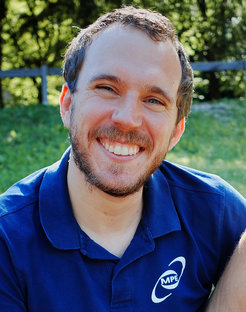Vittorio Ghirardini
"A recommendation to young scientists: learn to code almost professionally!"

Life
I am Vittorio Ghirardini, astrophysicist. I come from the Northern region of Italy close to Trento. I did graduate in physics (both bachelor and master) in Trento (Italy) and then proceeded for a Ph.D. in Bologna (Italy) in astrophysics. This choice is both to the fact that I have always been fascinated with astronomy in general since my youth (I had a very little telescope I used to observe stars and planets), and in particular, during my master, I focused my career exams mainly on astrophysics courses. Therefore slowly but surely astrophysics became my natural preference in terms of an academic career to follow. During my Ph.D. I‘ve found love for galaxy clusters, that since then has always been there. In particular I find fascinating how these systems can be seen as their own little Universe, and how they host some of the most energetic events in our Universe. I then proceeded with a Post Doc at the Center for Astrophysics | Harvard & Smithsonian in Cambridge (MA,USA) with Esra Bulbul, continuing to study galaxy clusters. Finally in 2019 as soon I‘ve got the opportunity, I followed her to MPE to work with eROSITA, particularly focusing on the eFEDS mini survey that is one of the main topic of EDR.
Science
In general my interest is in galaxy clusters, both on how we can use them to study the cosmological evolution of the Universe, and how we can use them to study very energetic processes, like AGN feedback or cluster mergers. In eROSITA I‘ve mainly focused on X-ray analysis, providing the group with several X-ray measured quantities, like temperature, density, luminsoity, and other properties of the hot gas in clusters (so hot that shines at X-ray energies). I‘ve already published a paper regarding the detection of a very interesting super-cluster, and currently I am working on another paper regarding morphological properties of clusters in eFEDS.
During my Ph.D. colloquium I was asked the value of the Hubble constant and in particular I was asked what are the units in which it is measured, at which I‘ve replied „Hertz“, which is not wrong, but is not usually how it is written (km/s/Mpc), and since my background was in physics mainly, I was not used as measuring lenght in Mpc, and since it is a length divided by another then you are left with a unit that is just frequency.
Hobbys
I am a person that have the tendency to change quite frequently my hobbies, however a few that are persistent are: hiking on mountains, bike riding, gardening, bread (and pizza) making with my own sourdough, or cooking in general.
Conclusion
If I could restart my academic career, I wouldn‘t change almost anything. And a recommendation to young scientists: learn to code almost professionally!












